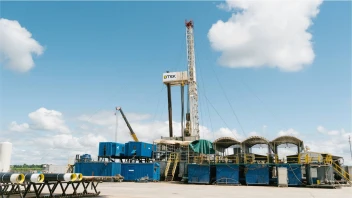“The EU is viewing hydrogen technologies as a strategic vector of economic growth. The rapid evolution of this technology in the EU will have a far-reaching impact on Ukraine. At the scale of our country, this technology and the infrastructure it requires can become a driving force that would propel the existing industries and Ukraine’s economy in general,” Mr. Volpe said.
He recalled that, according to plans unveiled previously, Europe expects Ukraine to install 10 GW of electrolyzer capacity, 2.5 GW of which will go toward local market development and 7.5 GW will support transboundary trade with the EU over a horizon of up to 2025.
Emanuele Volpe underscored that decarbonization was part of the DTEK growth strategy with its ambitious goal to become a carbon-neutral company by 2040.
“In 2020, DTEK formed a team to research the opportunities for using renewable hydrogen in existing industries. We are now working on an in-depth feasibility study for hydrogen application cases in transportation, the energy sector, and the manufacturing industry,” the DTEK Director of Innovations says.
He also pointed out that DTEK is the first industrial company in Ukraine to have joined the Hydrogen Europe association. “This membership will enable the company to form a network of direct contacts with international partners looking to develop a hydrogen economy both in Ukraine and globally,” Mr. Volpe says.
In his opinion, it is currently too soon to discuss the economic benefits of hydrogen applications. Rather, this issue has an environmental dimension that is critical to achieving shared global decarbonization goals. Nonetheless, companies all over the world, DTEK included, are working to make renewable hydrogen competitive.
“DTEK is looking for suitable business models and is willing to develop this business stream in partnership with others. It is also critically important to institute a legal regulatory framework that would govern the development of the new market, and this is where active involvement of all stakeholders is crucial,” the DTEK Director of Innovations underscores.
Hydrogen technologies are currently only entering the stage of mass application, hence the current absence of ready growth scenarios, as all countries, Ukraine included, are experimenting and learning, Mr. Volpe believes. “Without a doubt, this is one of those unique cases where Ukraine is not lagging behind other countries by a decade. We are more or less at the same stage. Although we clearly have less capital and the government can afford to provide less support, we are keeping pace with the times,” the DTEK Director of Innovations summed up.
Reference: The Sustainable Energy Europe summit is a key European event in the sustainable energy industry. This year it is being held online from November 18 to 20. It offers a platform where government representatives and industry leaders can share the latest projects, initiatives, and opportunities in sustainable energy. The summit will feature presentations by energy ministers of Germany, the UK, Denmark, Sweden, Portugal, as well as more than 300 market leaders.







